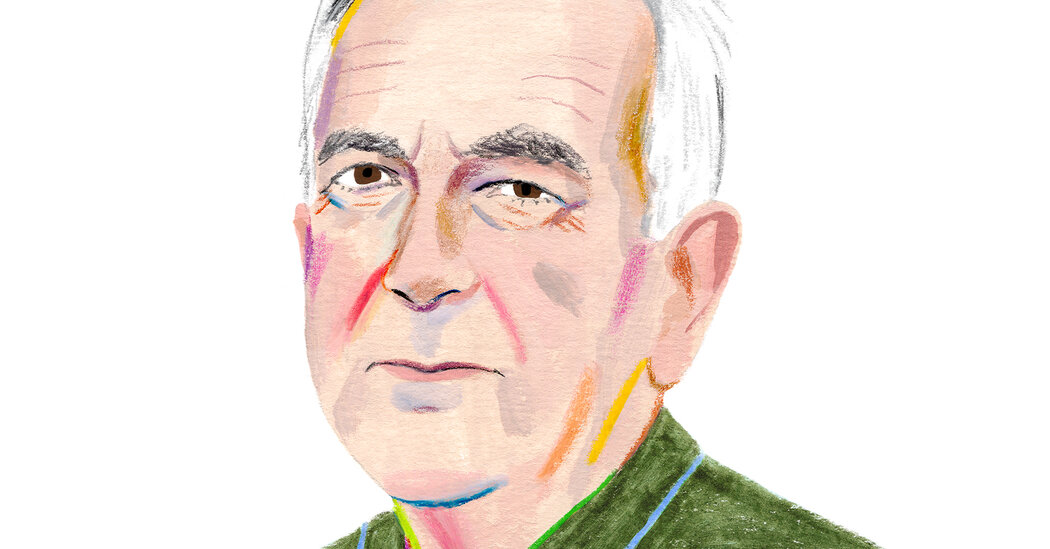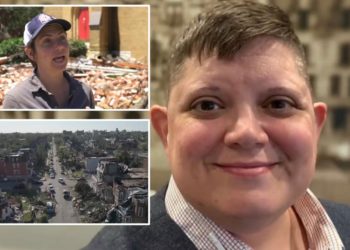The Vatican-set thriller “Conclave,” based on Robert Harris’s 2016 novel, is likely to be amply recognized at Oscars time. In an email interview, he theorized why the book and movie have dodged controversy. — SCOTT HELLER
What books are on your night stand?
A biography of Henry V by Dan Jones, and the life of Caesar Augustus by Adrian Goldsworthy.
What’s your favorite book no one else has heard of?
“Journey to the Abyss: The Diaries of Count Harry Kessler 1880-1918,” edited by Laird M. Easton. An amazing firsthand account of some of the leading cultural and political figures at the turn of the century.
Do you think any canonical books are widely misunderstood?
The Gospels. I reread them when I started work on “Conclave.” Their message is much more revolutionary than anything in Marx and Lenin.
Do you distinguish between “commercial” and “literary” fiction? Where’s that line, for you?
I don’t think there is a line. Look at the great novelists of the 19th century. They turned out a book or two a year, often in serial form, aimed at a large readership. If you’d asked Dickens or Trollope or Thackeray to distinguish between “commercial” and “literary” fiction, they’d have given you a blank look.
Eight of your novels have been adapted for the screen. What still surprises you about the process?
How seldom the original vision is preserved, how many egos — often with the best of intentions — conspire to distort it. But very occasionally, when the process works — as it has with “Conclave” — you end up with something wonderful, both recognizably the book and much more.
Is there one adaptation on which you wish you had more say?
“Fatherland.” It was my first novel, and I was very inexperienced. Mike Nichols bought it, to make a feature film. But it dwindled into a TV movie, and everything about it sets my teeth on edge, especially the ending.
The final twist in “Conclave” feels like it was written in, and for, this moment. Were you ahead of your time?
I knew it was a risk. But I thought, “This is what novels should do: jolt the reader, cause a commotion, make people think — even if they hate it.” It slipped by without too much fuss nine years ago. The reception of the movie has been different, probably because the issue is so much more potent today.
Why do you suppose that the Vatican hasn’t been hostile to “Conclave,” the book or movie?
Fundamentally I think the story is sympathetic to religious faith, and to Catholicism in particular. It’s written from the perspective of an insider rather than an outsider, of a man struggling to do the right thing. As one of the cardinals says, “We serve an ideal; we cannot always be ideal.”
How has your thinking (and writing) about politics changed over your years as a novelist?
I used to think of politics as essentially driven by rationality. Now I recognize that the processes of the human mind are much more emotional and complicated. It feels as though the era of the Enlightenment has ended; we are back in a time of superstition and conspiracy theories.
You’re regularly praised as a novelist strong on plot. Do you enjoy novels light on plot, but heavy on character or atmosphere?
I think there can be an aesthetic beauty in the working out of a plot, just as much as in language or character. For me, the supreme example is Dickens’s “Great Expectations,” in which all three work together.
When did you learn about Venetia Stanley, whose (epistolary) romance is at the heart of “Precipice”?
H.H. Asquith, the prime minister, wrote 560 letters to Venetia, most of them in 1914 and 1915: She kept them all. I calculate she must have written him at least 300 in reply: He destroyed the lot. What a novelist can do and a historian can’t is invent. The moment I started to imagine what she might have written back to him, she started to come alive in my mind — clever, funny, unconventional.
What was the secret to inventing letters from her in answer to actual ones written by the prime minister?
Her granddaughter let me see the letters she had written to other people. That helped to give me her voice. And from the letters he wrote to her, I could deduce the kinds of things she had said. I think she wrote quite passionately to him. It was a love affair completely unlike any other, between the leader of what was still, arguably, the most powerful country in the world, and a clever young woman less than half his age.
Do you still write letters yourself? On what occasions?
Hardly ever. Letters of condolence mostly. That’s one of the things that haunt me about “Precipice”: It describes the end of an ordered, peaceful world, a world before the widespread use of the telephone, let alone WhatsApp.
You’re organizing a literary dinner party. Which three writers, dead or alive, do you invite?
My three literary heroes: Graham Greene, George Orwell and Evelyn Waugh.
The post Robert Harris Likes the ‘Conclave’ Movie, But … appeared first on New York Times.




